Podcast: Play in new window | Download
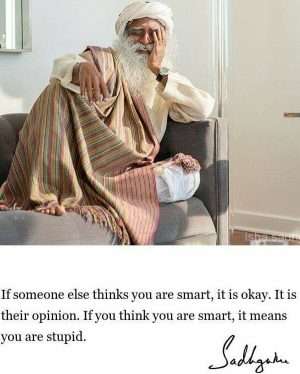 I woke up too early again this morning. 2:30. The question was: shall I get up? Will I have a good day?
I woke up too early again this morning. 2:30. The question was: shall I get up? Will I have a good day?
I muscletested and muscletest says: get up… but in the end I went back to bed… And I had this insight:
All questions, is this good, is this bad, shall I do this?, shall I do that? are all a variation of should…
All are signs of not willing to take responsibility of how life turns out.
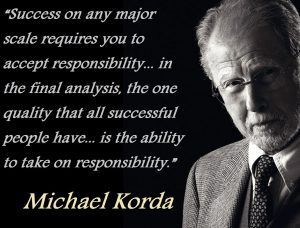 Taking responsibility that it is 90% up to you and to your actions what will happen, whether it will be good or bad. Not predetermined.
Taking responsibility that it is 90% up to you and to your actions what will happen, whether it will be good or bad. Not predetermined.
That it is up to you… and the moment you get that, the moment you own that, life is yours, and you are in the driver’s seat of your life.
Turns out everything depends on the threshold capacity, responsibility.
Every single time you attempt to use it tells your brain to pay attention.
As you can see from my frequent leaning on, relying on muscletesting to avoid being responsible: responsibility is not a common trait.
It takes courage, willingness to put your back behind your word. WORK. But it’s worth it.
And the rewards are tremendous.
Here is an example
On February 9th I accepted an assignment to heal someone.
I quoted 70 units of healing to get her well.
In the first seven days I spent all that healing energy just to hold back the tide and stabilize her.
In all my previous healing assignments I could only muster five units of the energy at one time. But when you face the Grim Reaper, you find energy you didn’t know you had. And you push. And you push. Or else…
On the eighth day I started to make some headway. And I didn’t dial myself back to the five units at a time level. No. Now I knew I could…
On the twelfth, the illness succumbed to the energy. She now has a clean bill of health.
Did I heal her? Did the energy heal her? Did her brain heal her?
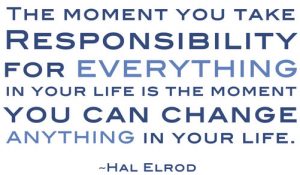 I am willing to take responsibility for what I did.
I am willing to take responsibility for what I did.
- I asked Sourse to create the energy ten years ago.
- Also I asked for an upgrade before I started this assignment… The upgrade added 20% more potency to the already strong energy.
- I went and learned to control my attention to direct the energy way way way longer than I had ever managed before.
- And I didn’t give up. I didn’t give in to blaming anything or anyone…
- And I succeeded. And the energy succeeded.
I didn’t HEAL her… Neither did the energy. The energy FORCED her consciousness and her brain to connect and wake up to the death threat.
Her brain healed her. But it only could heal her when she stopped spinning her wheels, doing what she thought she needed to do. When she finally succumbed and went to bed to just BE SICK.
So calling myself a healer would be a lie: I am just the instrument, a go-between. But a darn good at that.
I think people’s tendency to overrate their own role, both in failure and success, might be one of those things that keep people from being willing to be responsible.
- If you fail and then you are a failure, then the language suggests that life is over for you.
- If you succeed and then you are a success, then the language suggests that life is over for you.
I don’t know, I cannot decide which one is worse. They are equally stopping you from putting out effective effort.
Just try it out.
If you do something, and therefore you are smart… you won’t ever want to find out that you are not smart. So you’ll live a life of quiet desperation.
Most people who come to me fit into that mold. They were told by someone that they were a smart little boy or a smart little girl, and they stopped growing, and applying themselves then and there.
Intelligence, smarts is a use it or lose it energy.
By the time they get to me their IQ, the measure of what they are capable of doing, also a snapshot, is often down to 40.
Could they come back to the 100 that they were born with? What they were when someone told them they were smart? Yes. but it’s not easy.
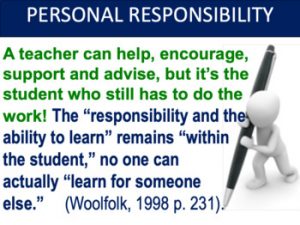 The delusion, the label interferes.
The delusion, the label interferes.
The shoulds interfere.
When I INVENTED (back in 1996) that I was stupid, I did what anyone with this ‘smart girl/boy’ label would need to do.
To start training their brain to do what smart people do. Starting from the level where they are at.
I had two master’s degrees by that time, and was good to fluent in seven languages. But my comprehension was way below smart. Connecting words with what they mean in action…
So I started to train my comprehension…
As I recall I got MY smart label at university. Three girls I was friends with. Before that I KNEW I wasn’t smart. Many of my worst life-decisions came from thinking myself smart.
Most people who come to me with that ‘smart’ label are not very accomplished, so they need to start on the level where they stopped growing… when they got the label. Many must have gotten it in elementary school. Most can talk, but they cannot think. All are talkers. Most can write, but what they say is all mind-stuff.
Talkers mostly continue on learning stuff that require no thinking. Because learning to think is actually an organic process.. When you do it when it was time to do it, it is not comfortable, but it is not very painful.
But unless you learn to think, you can’t do much of anything well.
Your brain is like a muscle in this regard. If you never forced it to jump, it can’t jump. If you never forced it to hold more than one piece of data at a time, it can’t.
Thinking requires that you hold more than one piece of data, data that are saying different things. And you need to connect them and resolve the gap between them.
And you can’t.
So how do you train your brain to do what you need it to do? It’s possible, but it is painful. Painful because you have no muscles.
And moreover: you resist it. You go to your mind and there YOU jump… into conclusion. Or you invalidate the person who tries to teach you.
You insist on the label… even though reality is telling you it’s not true.
But I am smart. yeah? Then why are all your decisions shitty, taking you deeper and lower?
This is the big issue. Training, after surrender, is probably easy.
It begins with opening up to inclusion. Including another… Including the opposite of what they would normally think, do, or say. Has happened once… With one client. So far…
It begins with seeing that workability begins with AND… while unworkability is all OR.
I found an article when I asked google what is the price you pay if you think yourself smart and you aren’t.
I am going to quote, and maybe edit it a little. Warning: the article was about leaders and leadership. don’t be thrown by that. We are all supposed to be leaders, if nothing more, to lead our own lives.
So how do you know when you’ve crossed over to the dark side and can’t tell the difference between fact and fiction? The following 5 items will help you discern whether or not you are using your intellect properly, or whether you’ve just simply bought-off on your own propaganda:
1. Consistent Conflict. Arguments, justification, explanations…:
Do you find yourself in a perpetual state of debate? Do you find yourself thinking ‘why am I the only one who gets it?’ Is it more important for you to be right than to arrive at the correct resolution to an issue, problem or opportunity? Are you known as a bitter, pessimistic or negative person? If any of these issues describe situations that hit too close to home then you may want to take a step back and do some self-evaluation.
2. Lack of Professional or personal Growth:
I’ve often said it’s impossible for stagnant person to sustain growing organizations. If you prefer to rest on your laurels rather than continually stretch your mind you’re in for a rude awakening. Warning: People who don’t develop themselves professionally will be replaced by those who do.
3. Exclusivity vs. Inclusivity:
Do you use your intelligence to intimidate and stifle others, or to encourage, inspire and motivate others? Do you wonder why you can’t seem to retain tier-one talent or why you lose key clients? If your brilliance is polarizing as opposed to engaging, then how smart are you really?
4. True Success:
If an independent third party interviewed your peers and subordinates alike, what would that feedback look like? Do others see you as successful, or are you merely a legend in your own mind? What I think of myself is not nearly as important as what my family, friends, clients, and co-workers think of me. If those you surround yourself with don’t hold you in high regard, then you have no reason to.
5. You’re Too Busy:
Saying ‘I’m too busy for _________’ is code for you don’t value whatever __________ is. Smart people are never too busy to make good decisions, to invest in people, to listen, or to learn. The job of a person is to understand the value of creating and leveraging white space both personally and organizationally.
Bonus: You’re A Bad Listener:
Stop worrying about what you think, what you’re going to say and focus on what’s being said. Don’t listen to have your opinions validated or your ego stroked, listen to be challenged and to learn something new. You’re not always right, so stop pretending you know everything and humble yourself to others. If you desire to be listened to, then give others the courtesy of listening to them. It’s important to remember you should never be too busy to listen.
And this is from me: if you think that because you did it once, now you can… then that is your biggest issue.
Whatever it is you tried once and succeeded, if you think that that means you are done, then that is the most important issue you have: a delusional self-view.
When I look at the hoards of manifestation adherents, what sustains their delusion is that they did it once.
They said: I want more money, for example, and unexpected money came. And now they believe that they can manifest more money.
Really?
In this work, and arguably any work worth its salt, repetition and consistency are what produce lasting result, results worth producing.
So I’ll add this piece to the ‘you are not as smart as you thought you were’ topic: you are not consistent.
According to some, if you do something for 21 days, then your brain will have it as a habit. What they don’t tell you, is that the first more than 21 days you’ll do that thing wrong… misunderstanding it, and with wrong form.
So it could be possible that by day 40 you’d start doing the thing with good form with the right mindset, for the right amount of time… and that is when your habitforming process would begin.
Both in the Reality Challenge and the 67 Step Coaching, this has been the issue.
No wholesome habit was formed. Because the activity that should become the habit is done sloppily, without knowing the purpose, just to get it done.
To get through it.
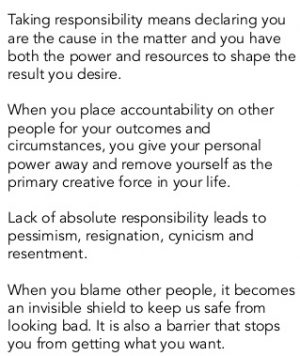 So what people practice is the same thing that has been holding them down:
So what people practice is the same thing that has been holding them down:
- getting through it.
- Not putting all power in what they are doing.
- Or they are forcing.
- Or they are doing it mindlessly.
- They are hoping that the activity will set them free… without them. Without them doing the mental work that is hard.
Hard. Doing the right thing with the right form, with putting all power into the action, repeated that way enough times, that the muscle memory (in the brain) will now do it automatically. which is the meaning of unconscious competence.
In the beginning it is hard to do and also to pay attention to the form, and the details, the nuances…
One of the things I am aiming to reach unconscious competence is article writing… the formatting aspects. Short paragraphs. Short sentences. No more than two sentences starting with the same word. Using active language instead of passive. Writing on the level of people whom I want it to read it. etc. .
I have been practicing this for more than three months, and I am still not good at it.
Landmark Education teaches a power move that mastering it would put a person to the top one percentile of all people.
They don’t tell you what it can do for you. They don’t tell you, or not really, what mindset to have when you do it. Why? I think they don’t know it.
In a way it is like religion: ‘I was told to do it this way.‘
I am one of those people who actually did it. For many years. No breaks. No stopping. Like breathing. Correctly.
The move is called ‘enrollment’.
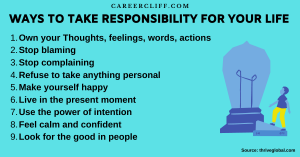 Enrollment is a conversation you have with another.
Enrollment is a conversation you have with another.
You share something in a way that the other person is touched, moved, and inspired by what they see for themselves in what you shared, because YOU are touched, moved, and inspired by it.
The purpose is to desire to receive for the sake of sharing. You are the main beneficiary. A secondary beneficiary may be Landmark Education. And another one is the person you share with.
And everyone benefits. You are a rainmaker… lol.
I participated with thousands of people on all levels in the 26 years that I was actively participating in Landmark Education’s programs.
I met exactly zero person who did that power move with the right purpose in mind, with the right form.
- They did it to ‘help’ or change the other person…
- or make them come to an introduction… No beneficiary other than them.
- Maybe to serve Landmark Education’s purposes.
- Or to do what they said they would do.
- So that they’ll look good.
- Or to feel superior.
- Or to be well thought of…
But not for the purpose of ‘desire to receive for the sake of sharing’.
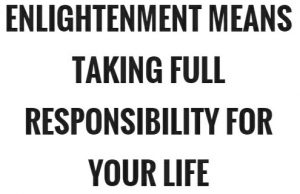 So here I am, having performed a healing miracle. and would love to ask my people to share it.
So here I am, having performed a healing miracle. and would love to ask my people to share it.
But all my people have all those selfish purposes all Landmark Education graduates have… desire to receive for the self alone…
So I am hesitant. Because just like your Jesus‘ adherents, you’ll share fake miracles, you’ll share walking on water, and healing the blind, but not what actually happened. Not what is possible. And you’ll attract the kind of people I’d rather not know.
Ugh.
Long article. I don’t know if any of it will get through the defenses of your mind that say: I already know that. Or alternatively: who does she think she is?
PS: If you want to start the process to allow yourself to change, to learn… I have another article on the site for you: The Backfire Effect. You’ll understand why you resist to much…
